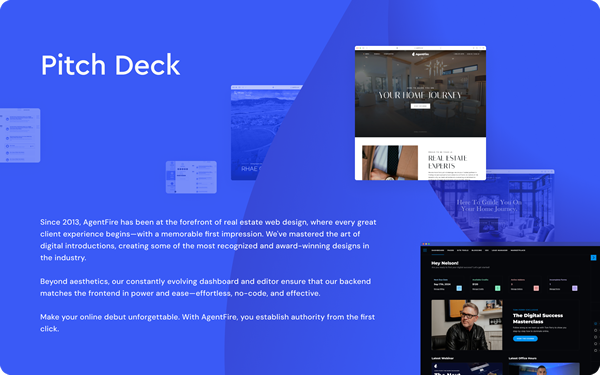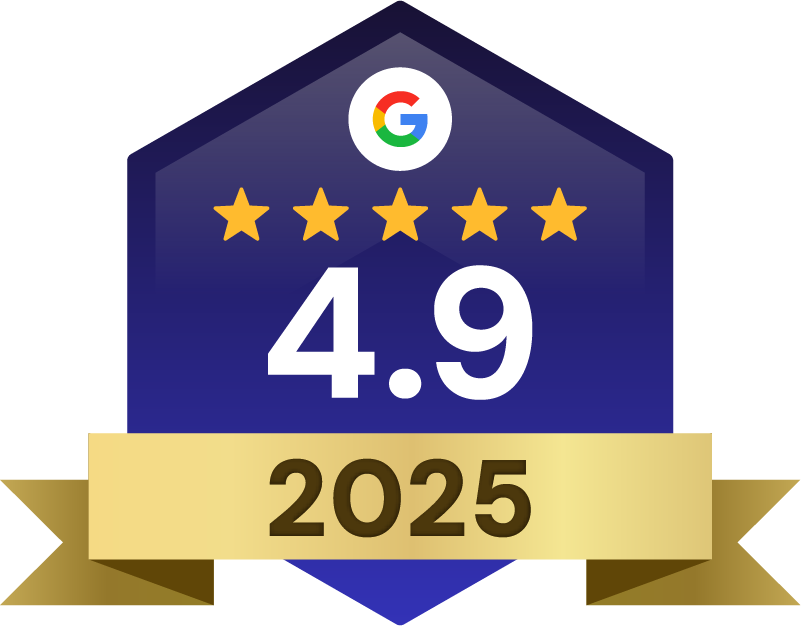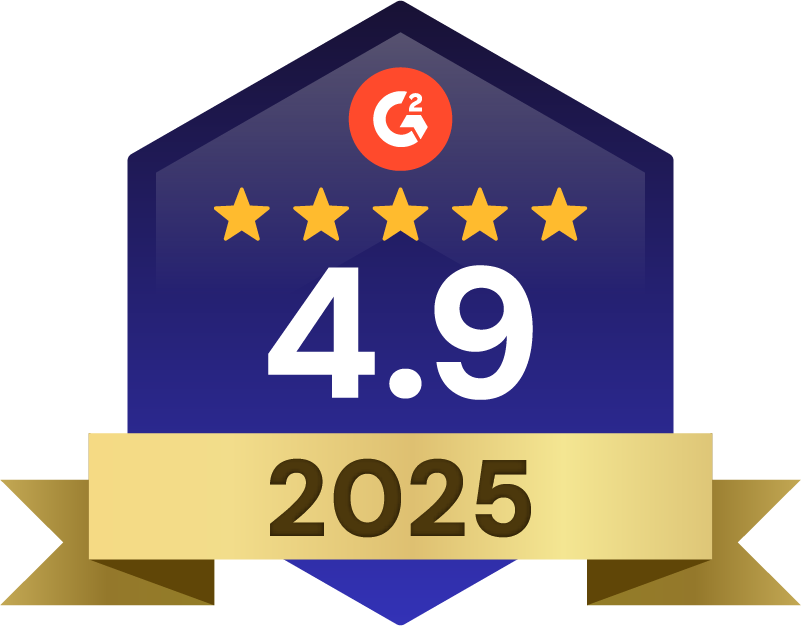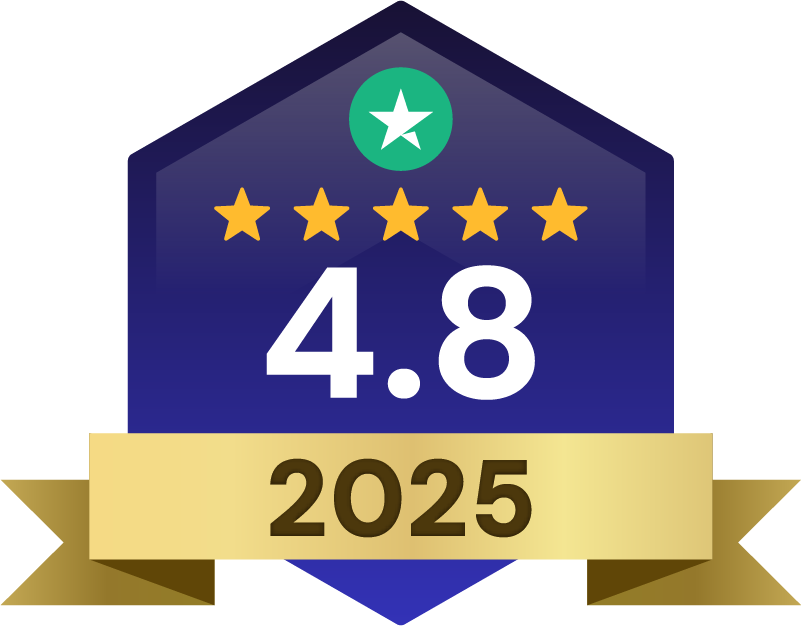40+ best real estate marketing ideas · 1. Build an Optimized Site · 2. Create Localized SEO Content · 3. Offer High-Value Lead Magnets
Branding & Design Content Marketing Lead Generation
Real estate marketing is about more than just getting listings in front of buyers—it’s about creating a strong presence, building trust, and making sure your name is the one people remember when they’re ready to make a move. The best agents don’t just rely on one strategy; they combine digital tools, traditional methods, and creative tactics to stay ahead.
The key is a well-rounded approach that keeps you visible both online and in your local community. Whether you’re refining your social media game, email campaigns, optimizing your real estate website, or finding new ways to connect with potential clients, every effort adds up.
In this guide, we cover the most important aspects of real estate marketing. Each tip is designed to help you take real, practical steps toward growing your business.
In this Article
Real Estate Marketing Ideas for Your Website

1. Build an Optimized and Mobile-Responsive Site
Begin by ensuring every visitor has a smooth user experience, no matter the device. Your site must load quickly, adapt to different screen sizes, and feature intuitive navigation. If a prospective buyer or seller lands on a clunky website, they may leave in seconds. Treat your homepage as a welcoming lobby to your agency.
Use concise text, large visuals, and a clear call to action like “Schedule a Consultation” or “Search Local Listings.” Show that your brand is professional, digitally savvy, and worth trusting. If you’re struggling to achieve these essentials, consider working with a specialized provider like AgentFire, the number-one ranked real estate website provider, to get your website performing at its best.
2. Create Localized SEO Content
Craft blog posts and neighborhood guides that cater to specific areas. If you target families, write about “Top 5 School Districts in Tampa” or “Why Young Families Love Suburban Alpharetta.” If you focus on luxury markets, detail “Best Gated Communities in Palm Beach” or “5 Waterfront Neighborhoods in Seattle With Breathtaking Views.” Doing so boosts your site’s local SEO rank and captures the attention of people searching for in-depth info on those locales.
3. Offer High-Value Lead Magnets
Develop freebies, such as “A First-Time Homebuyer’s Toolkit” or “Your 2024 Guide to Downsizing Without Stress,” that people can download if they exchange their email address. This approach generates leads and positions you as an educator rather than a pushy salesperson. Place these lead magnets prominently on your homepage or create dedicated landing pages. Once readers opt in, follow up with email sequences that provide even more actionable tips, inviting them to schedule a call when they’re ready.
4. Embed an IDX Feed
Embed an IDX (Internet Data Exchange) feed or property search function on your site so visitors can browse local real estate. Prioritize speed and user-friendliness: incorporate advanced filters, map search, and straightforward scheduling functionalities for tours. Keep your listings updated so prospective buyers know they can trust your site as a reliable resource. Frequent updates also show search engines that your site is active.
5. Showcase Video Walk-Throughs
Upload short videos or 3D tours directly to your listing pages. While text-based descriptions are important, video walk-throughs let a visitor virtually explore the home from kitchen to backyard. Whether embedded from YouTube or uploaded internally, video drastically increases your site’s “time on page,” which signals to Google that your content is engaging. Offering this interactive approach can also impress sellers who want advanced marketing for their properties.
6. Social Proof Your Website
Display client testimonials, reviews, and awards on a dedicated “Testimonials” page or embed them in your homepage design. A short quote from a satisfied seller who brags about your negotiation skills or from a buyer praising your neighborhood expertise can go a long way. If you can get short testimonial videos, even better. Genuine social proof persuades new visitors that you’ve delivered results time and again.
7. Regularly Update the Blog
Keep your website fresh by posting once or twice a month. Offer relevant market updates, tips for staging, or interesting local news. Potential clients return for value, while Google sees consistent, fresh content and rewards you with better search visibility. Think about recurring features like “Neighborhood of the Month” or “Latest Market Trends,” so readers know to check back for new insights.
Real Estate Social Media Marketing Ideas

8. Launch Short-Form Vertical Videos
Use Instagram Reels, TikTok, or YouTube Shorts to capture quick, snackable content. Show a thirty-second home tour or share a snippet of you interviewing a local coffee shop owner. Incorporate trending audio clips to stay on top of platform algorithms. Even if you’re new to video, vertical clips feel more casual, so don’t be afraid to film with your smartphone. Authenticity often outperforms polished perfection on platforms known for quick hits of entertainment and education.
9. Run Facebook and Instagram Ads for Targeted Outreach
Create ad campaigns that focus on a specific demographic or location. Perhaps you target people in your city who recently looked at Zillow. Direct them to a unique landing page on your website. Experiment with different calls to action, like “Discover Your Home’s True Value Now” or “See the Top 3 Starter Homes Available Today.” The more you fine-tune your targeting, the higher your chance of capturing warm leads.
10. Share “Behind the Scenes” Content
Show your personality by giving followers a peek at your typical day. Post a story on Instagram from the car, explaining why you’re excited to show a certain listing. Or do a livestream on Facebook while you set up an open house, describing the property’s top features. Such content feels exclusive, building rapport with watchers and demonstrating you’re an active agent out in the field.
11. Engage Deeply in Local Groups
Join neighborhood or community Facebook Groups and provide insights when someone asks about “best moving companies” or “school districts.” Avoid spammy self-promotion. Instead, become a helpful neighbor with genuine knowledge. Over time, group members may refer you, mention your services, or tag you when real estate questions arise. People trust those who appear genuinely enthusiastic about helping, not just about advertising.
12. Host Interactive Social Media Contests
Boost your follower count and engagement by running contests like “Guess the Home Price” or “Caption This Property Photo.” Offer a small prize for the winner, such as a local gift card or donation to a charity of their choice. By requiring participants to comment, like, or share your post to enter, you expand your reach. These lighthearted activities remind audiences you’re approachable and creative.
13. Repurpose Longer Videos Into Multiple Snippets
If you host an hour-long webinar or create an in-depth YouTube home tour, carve out short clips for Instagram Reels, LinkedIn posts, or Facebook stories. Each snippet can highlight one key tip or interesting feature. Reusing content in different formats not only saves you time but also brings consistent branding across channels. This ensures a wider portion of your audience sees at least part of your full message.
14. Post Interactive Polls and Q&As
Use Instagram Stories or Facebook polls to ask “What’s your favorite local coffee shop?” or “Would you rather have an in-ground pool or a bigger backyard?” Simple questions get your audience involved, and their votes or comments can reveal tastes in home features. Polls also help you gather quick market research—info you can use in future marketing or blog posts.
Local Real Estate Marketing Ideas

15. Partner With Local Businesses
Reach out to small businesses—bakeries, nail salons, landscaping services—and propose cross-promotions. You might hang an eye-catching flyer about your listings, and they might hand out your business card to interested customers. In exchange, you could promote them at your next open house with freebies or flyers. This way, you both tap into each other’s customer base, building a sense of community around your brand.
16. Sponsor Neighborhood Sports and Events
Invest in local youth teams, golf tournaments, or community festivals to get your name on promotional materials and event banners. Whether it’s T-shirts for a Little League team or a booth at a holiday event, you reinforce that you’re truly part of the neighborhood. When local parents see your name supporting their kids, they form an emotional bond that can lead to referrals.
17. Host Face-to-Face Workshops or Webinars
Offer a free “First-Time Homebuyer’s Class,” either at a local coffee shop or through a Zoom meeting. Advertise through community bulletin boards, local Facebook pages, or your email list. Teach attendees about mortgage basics, the home search process, and closing costs, leaving time for Q&A. Provide a handout or digital presentation they can take home. Many participants may follow up for more personalized help.
18. Hang Door Hangers or Deliver Postcards
Target specific neighborhoods where you’ve had recent successful sales or that appear to have many prospective sellers. Print door hangers or postcards with a friendly message like “Thinking of Selling? We Sold 2 Homes on This Street in the Last 30 Days.” Include a scannable QR code leading them to a local home valuation page. Keep designs colorful yet clean, and focus on the local data points that catch homeowners’ interest.
19. Develop Community-Focused Content
Interview local artists, farmers’ market vendors, or popular restaurant owners for your blog. Chat about why they love the area and what new or hidden gems exist in the community. Then share the write-up or video on your site and social channels. This approach cements your status as a connector, not just a salesperson. Residents appreciate an agent who highlights their hometown pride.
20. Engage With Local Media
Email local newspapers, lifestyle magazines, or news channels offering your perspective on real estate trends. They’re often looking for subject-matter experts to quote, especially for stories about market shifts or major neighborhood developments. Earning a press mention or invitation to speak about housing data on a local morning show can dramatically boost your credibility. Save a PDF or clip to share on your site as social proof.
21. Join Community Boards or Associations
Volunteer for the Chamber of Commerce or sit on a neighborhood beautification committee. Genuine civic participation demonstrates you care about the broader well-being of your locality. Meetings can also help you form relationships with influential residents and business owners who often share leads once they know, like, and trust you. This method might be time-intensive, but the deep community ties formed can yield big payoffs in referrals.
Click the button below to learn more about pricing.
Real Estate Email Marketing Ideas

22. Segment Your Email Lists
Group your leads into categories like “first-time buyer,” “luxury seller,” “investors,” or “past clients.” Use a simple CRM with tagging or segmentation features and deliver content suited to each group’s interests. For example, past clients might appreciate community updates or invites to client appreciation events, while prospective sellers may value monthly neighborhood price stats and tips for boosting curb appeal.
23. Create Automated Drip Campaigns
Write a series of automated emails that trigger when a new lead signs up. For instance, a buyer funnel might start with a “Welcome” email, followed by “Home Financing 101” after two days, “Neighborhood Spotlights” a week later, and a personal check-in about 10 days after that. This nurtures leads gently, so you don’t have to manually send each resource. If your CRM supports it, include logic that customizes steps based on user behavior (like clicking certain links).
24. Send a Monthly Newsletter
Keep your email database engaged by distributing a concise, visually appealing monthly newsletter. Include sections like “Local Market Update,” “Featured Listing,” and “Community Events You Can’t Miss.” If you run a blog, link to new posts or videos. A consistent newsletter trains contacts to expect valuable content. As they see your name monthly, you remain top-of-mind when they decide to buy or sell.
25. Add Video Email Messages for Personal Touch
Record a short, friendly video (30 seconds to a minute) using tools like BombBomb or Loom, and embed it into your email. Greet the recipient by name, thank them for contacting you, and mention a few steps you’d like them to take next. Answer a question they’ve raised or show a mini neighborhood tour. Personalized video emails stand out in a crowded inbox, forging a stronger connection than text alone can.
26. Offer Market Snapshots and Stats
Send periodic “Neighborhood Snapshot” emails, summarizing how many homes were listed, how many sold, average days on market, and any big changes to local property taxes or real estate trends. Package the info in a simple, visually appealing format with color-coded stats or mini-charts. Recipients appreciate data that helps them weigh selling or buying decisions, and you reinforce your expertise as a local specialist.
27. Follow Up on Inquiries Fast
Optimize your email system for speedy lead responses. When a lead fills out a website form, auto-send them an immediate “Thank you, we received your request” message. Then strive to personally follow up within 5-15 minutes. Quick responses significantly boost your conversion rate, showing potential clients you’re attentive and professional—qualities everyone wants in an agent.
28. Personalize Subject Lines
Write enticing subject lines such as “John, see 3 new listings that match your budget” or “Elaine, here’s your updated home valuation.” Merge fields can dynamically insert each recipient’s name or relevant property info. People are far more likely to open an email that seems tailored, rather than a generic “Check out my new listing.” Show them you see them as an individual.
Offline Real Estate Marketing Ideas

29. Conduct Engaging Open Houses
Invite neighbors via door hangers or postcards, highlight special features with well-placed signs, and greet visitors warmly. Provide a printed brochure with professional photos so they can remember the home’s layout. Some agents serve refreshments or host a mini-lifestyle demonstration, such as how the living room can double as a home office. Collect visitor info in a sign-in format—digital or analog—to follow up later. Even if attendees aren’t hot prospects, they might mention the open house to an interested friend.
30. Create Memorable Business Cards
Design a card that stands out visually, perhaps with raised lettering, a headshot, or a scannable QR code linking to your website. Write a catchy tagline on the back or a short list of your specialties (e.g., “Luxury Homes • Beachfront Properties • Downtown Condos”). Hand out your cards at events, local businesses, or chance encounters. Business cards might seem old-school, but they’re still a relevant branding item when done creatively.
31. Try Door-Knocking
Approach door-knocking not as a pushy sales tactic but as a way to answer homeowners’ questions about the current market. Bring a small neighborhood value report or a list of just-sold properties in that area. Ask if they have any real estate needs or if anyone they know might be moving soon. Always respect homeowners’ time and be ready with a polite exit line if they’re not interested. The personal touch of face-to-face contact still resonates powerfully.
32. Use Direct Mail Campaigns
Send postcards or letters that revolve around a theme or timely hook, like “Your Home Value Has Likely Changed—Find Out How Much” or “We Recently Sold a Home in Your Neighborhood for Over Asking!” Keep the design crisp and the text readable. Prompt recipients to take a next step, such as scanning a QR code or calling for a free consultation. Consistency is key: mailing quarterly or monthly keeps you top-of-mind.
33. Advertise in Hyperlocal Print Media
Consider local magazines, community newsletters, or association bulletins. People who read these are often highly invested in local happenings. If you farm a specific development or neighborhood, print ads can be surprisingly cost-effective since the distribution is narrowly targeted. Incorporate your brand colors, your headshot, and a strong call to action so the ad stands out more than a simple listing of your name.
34. Offer Creative Closing Gifts
Surprise clients with something personal—perhaps a framed photo of their new home, a custom doormat with their last name, or a curated box of local goodies. If your market is more upscale, gift a high-end subscription crate or a unique piece of art from a local gallery. Show that you appreciate their business, not just their commission. A thoughtful gift can lead to glowing testimonials and referrals.
35. Throw Client Appreciation Events
Invite past clients to gatherings like a summer BBQ, winery day, or holiday party. Encourage them to bring friends or family. Show your gratitude for their trust, update them on market trends, and blend in fun elements like a raffle or photo booth. Nurturing old relationships yields repeat business and can spur word-of-mouth referrals from the event’s buzz.
Unique Real Estate Marketing Ideas

36. Integrate Virtual and Augmented Reality
Offer VR property tours with a headset or 3D experiences that let users “walk” through a listing. This is especially appealing for out-of-town buyers or luxury listings that can’t always accommodate foot traffic. You can also use AR apps to let buyers see how furniture might look in an empty room. Being tech-forward can help your properties stand out in searches and create memorable viewer experiences.
37. Launch a Hyperlocal Podcast
Record episodes that explore local neighborhoods, highlight community businesses, or dive into real estate Q&A. Invite local guests like restaurant owners or city council members. Podcasts allow for a casual format, letting your expertise shine without sounding like a sales pitch. Share episodes on your website and social channels, and watch as potential leads begin to see you as the local expert.
38. Optimize Listing Descriptions
Stop writing dull property summaries. Inject humor or vivid language, like “Store all your favorite snacks in this walk-in pantry big enough to host Thanksgiving dinner!” or “Wake up every morning to golden sunlight dancing on your private balcony.” Small splashes of personality can make your listing more noticeable online. Plus, your brand can start to develop a reputation for creativity rather than formulaic property copy.
39. Host a Charitable Event at a Listing
Invite community members to a “home tour fundraiser,” donating a portion of any proceeds to a local charity. Provide drinks and hors d’oeuvres, and invite relevant businesses (like a local winery) to set up a tasting station. You generate foot traffic to the property and align yourself with a good cause, which resonates well with conscientious buyers and neighbors. This memorable twist also tends to get heavy social media and local press coverage.
40. Offer Personalized Home Readiness Kits
If you sense a client is 6–12 months away from listing, gift them a “Home-Seller Prep Kit.” Include a short workbook with checklists (decluttering tips, minor repairs, painting suggestions), discount coupons from local handymen or cleaning services, and your contact info. This touches them at a critical point in their decision cycle, reminding them you’ll be there when they’re ready. The personal approach sets you up as their experienced guide.
More Real Estate Marketing Ideas
41. Collaborate with Influencers
Partner with an influencer who resonates with your target demographic—like a local food blogger or a home design Instagrammer. Perhaps you walk them through staging tips in a property or discuss your city’s newest developments. They post about it to their followers, leading to potential new leads who trust the influencer’s endorsement.
42. Monitor and Analyze Marketing Data
Use Google Analytics and social media insights to track page views, email open rates, click-throughs, and conversions. Determine which blog topics or social ads yield the best leads, then replicate the winning formulas. You might discover that your “Top 5 Waterfront Condos” reel performs exceptionally well on Instagram and, thus, repeatedly create similar content focused on local amenities or properties.
43. Integrate a Chatbot
Implement an AI-driven chatbot on your website—especially if you often get queries about open houses, mortgage rates, or listing availability. The chatbot can handle basic questions 24/7, letting potential leads self-serve some info before you personally follow up. People appreciate immediate feedback in high-stakes decisions like real estate. If the chatbot escalates a query to you in real time, you can respond with a personal touch.
44. Publish Market Prediction Videos
Carve time quarterly or annually to forecast trends in your local real estate market. Share data on inventory, price fluctuations, or new construction. Project how buyer demand might shift based on interest rates. Buyers and sellers love to hear forward-looking analysis from professionals. Posting this on your blog and YouTube channel also positions you as a thought leader who’s ahead of the curve.
45. Throw Themed Listing Events
Hold specialized open houses around a theme, such as a “Twilight Tour” with candlelit ambience, or a “Tech Home Tour” where visitors can see cutting-edge smart home gadgets. Themes drive curiosity and foot traffic. They also help your brand stand out among countless, generic open houses. Document the event on social media, encouraging attendees to share photos or live streams.
46. Test Out SMS Marketing
Use a texting platform that captures phone numbers (with permission) and occasionally blasts out new listings or open house invitations. Keep the frequency low, maybe twice a month, and ensure each text conveys genuine value. People are far more likely to open and see a text than an email. A quick message like, “Just listed: a 3-bed cottage by the lake with brand-new docks—reply ‘info’ for details,” can prompt immediate engagement.
47. Maintain a Growth Mindset and Stay Curious
Finally, adopt the belief that real estate marketing is never “done.” New tech tools emerge, consumer preferences shift, and your local area changes. Embrace continuing education courses, conferences, or mastermind groups to stay sharp. Follow industry blogs and watch how top producers innovate. A growth mindset keeps you nimble, open to experimentation, and enthusiastic about delivering top-tier service while your brand flourishes.
The Bottom Line
The right mix of real estate marketing strategies can transform your business and establish you as the go-to agent in your market. From optimizing your website and leveraging social media to implementing creative local outreach and maintaining strong email campaigns, our list of strategies provide a comprehensive framework for growth. The key is to start with the fundamentals, gradually expand your toolkit, and consistently track what works best for your unique market and audience.
Ready to take your real estate website to the next level? Book a demo with AgentFire and learn how the #1 ranked real estate website provider can help you implement these strategies and grow your business.


![40+ Effective Real Estate Marketing Ideas [2025]](https://agentfire.com/wp-content/uploads/2019/09/150-real-estate-marketing-ideas-featured-image.jpg)




